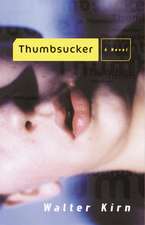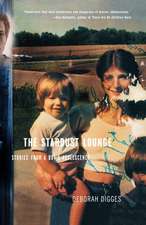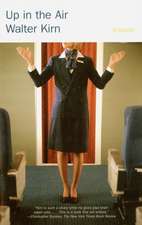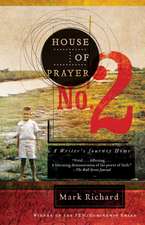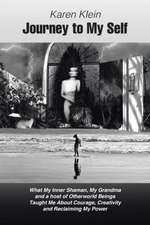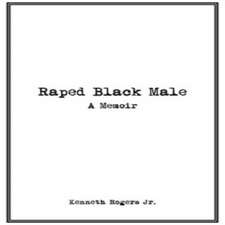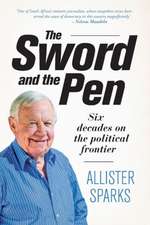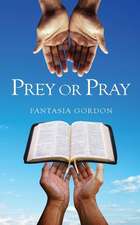Lost in the Meritocracy: The Undereducation of an Overachiever
Autor Walter Kirnen Limba Engleză Paperback – 31 mai 2010
A Daily Beast Best Book of the Year
A Huffington Post Best Book of the Year
From elementary school on, Walter Kirn knew how to stay at the top of his class: He clapped erasers, memorized answer keys, and parroted his teachers’ pet theories. But when he launched himself eastward to an Ivy League university, Kirn discovered that the temple of higher learning he had expected was instead just another arena for more gamesmanship, snobbery, and social climbing. In this whip-smart memoir of kissing-up, cramming, and competition, Lost in the Meritocracy reckons the costs of an educational system where the point is simply to keep accumulating points and never to look back—or within.
Preț: 97.15 lei
Nou
Puncte Express: 146
Preț estimativ în valută:
18.59€ • 19.34$ • 15.35£
18.59€ • 19.34$ • 15.35£
Carte disponibilă
Livrare economică 24 martie-07 aprilie
Preluare comenzi: 021 569.72.76
Specificații
ISBN-13: 9780307279453
ISBN-10: 0307279456
Pagini: 211
Dimensiuni: 134 x 204 x 17 mm
Greutate: 0.25 kg
Editura: Anchor Books
ISBN-10: 0307279456
Pagini: 211
Dimensiuni: 134 x 204 x 17 mm
Greutate: 0.25 kg
Editura: Anchor Books
Notă biografică
Walter Kirn is a regular reviewer for The New York Times Book Review, and his work appears in The Atlantic, The New York Times Magazine, Vogue, Time, New York, GQ and Esquire. He is the author of six previous works of fiction: My Hard Bargain: Stories, She Needed Me, Thumbsucker, Up in the Air, Mission to America and The Unbinding. Kirn is a graduate of Princeton University and attended Oxford on a scholarship from the Keasby Foundation. He lives in Livingston, Montana.
Extras
Chapter
One
On the bus ride down to St. Paul to take the test that will help determine who will get ahead in life, who will stay put, and who will fall behind, a few of my closest buddies seal their fates by opening pint bottles of cherry schnapps the moment we leave the high-school parking lot. My pals hide the liquor under their varsity jackets and monitor the driver's overhead mirror for opportune moments to duck their heads and swig. A girl sees what they're up to, mutters "Morons," and goes back to shading in the tiny ovals in her Scholastic Aptitude Test review book. She dated one of the guys awhile back and seemed amused by his clowning for a time, but lately she's grown serious, ambitious; I've heard she's decided to practice law someday and prosecute companies that pollute the air. When she notices one of the bottles coming my way, she shoots me a look of horror.
"No thanks," I say.
My friends seem wounded by this--aren't we teammates? We play football and baseball together. We hang out. In our high-school class there are only fifteen boys, and every summer before the bugs get bad a bunch of us pitch tents beside the river and cannonball from the cliffs into the current, sometimes splashing down in twos and threes. In the winters some of us work at the same ski hill, selling lift tickets and running chairlifts, and during haying season we form crews to help out the guys who live on farms. We talk as though we'll be together forever, but I've always known better: someday we'll be ranked. We'll be screened and scored and separated. I've known this, it seems, since my first few years in grade school, not in this town, Taylors Falls, but in Marine, a few miles down the valley, when I raised my hand slightly faster than the other kids--and waved it around to make sure the teachers saw me.
A friend pushes the schnapps on me again just as I'm starting to panic about time. The test begins in an hour and a half but we're still twenty minutes from the interstate, stuck behind a lumbering Case tractor in the land of grain silos and barns where my family lives on a small farm that we cultivate, Amish style, with a team of horses, and where I spend my after-school hours splitting firewood, setting fence posts, filling stock tanks, and collecting eggs. It's been my home for several years now, but it's also a stage set, a fantasy, and one that I've never found convincing. My father isn't a farmer, he's a patent lawyer, and our family's excursion into vintage agriculture (like our conversion to Mormonism, which preceded it) is just one more phase in his campaign against convention and conformity that began twelve years ago, when he joined the 3M Corporation in St. Paul and sacrificed, as he saw it, his sacred freedom to the dictates of the herd. He's been rebelling ever since, pursuing a rugged individualism that has involved, at different times, bow hunting, mountain climbing, weight lifting, and now, in his greatest caprice to date, nineteenth-century subsistence living. But those days are almost over, at least for me. I gaze out the bus window at the countryside and wonder what could have drawn my father here other than an instinct for self-punishment. Junk cars up on cinder blocks in scrubby fields, mangled deer on the shoulders of dirt roads, lonely old folks sitting on sagging porches breathing from portable tanks of oxygen. I see myself living in New York someday, in an art-filled apartment with views of vaulting bridges, not mired in this place of wistful rot.
"I already said I don't want any," I say. The guy now holding out the schnapps is named Rolf, a hulking colossus of pale Norwegian gristle who plays center on the Bluejays, our losing football team.
"Afraid you'll catch my germs?" he cracks.
"Everybody who drinks from the school water fountain already has your germs."
"Right. Like you're some perfect Mr. Clean."
"At least I shake off before I zip back up."
Rolf flips me the bird. There's black crud under his fingernails. He works part-time for his uncle's excavation company, and once he learns to run a diesel backhoe he'll have job security for life. Instead of wasting my energy sparring with him, I should be concentrating on the review book like the red-haired boy across from me, the only other A student on the bus. He's a hard kid to get to know, a social ghost, forbidden by his family's harsh religion from singing holiday-related songs and forced by its stringent dietary teachings to live on sack lunches of carrots and slivered almonds. Sometimes I fear he's brighter than I am; he's certainly more studious. He works with his head down, calm and dogged, while I rely on gimmicky maneuvers such as rephrasing teachers' simple questions ("How does racial prejudice contribute to inner-city hopelessness?") into complicated riddles ("Is our conception of 'inner-city hopelessness' perhaps in itself a form of prejudice?") designed to provoke class discussions that I can dominate with my amped-up flash-card-based vocabulary. Do my ploys show intelligence or desperation? Both, I suspect. In me the traits seem fused.
I watch the bottle being passed and I make my final plea.
"Stop it, you guys. Today is a big deal for us."
But they know this already--they just don't like the fact. The SAT isn't a reckoning they asked for. The exam was devised by strangers on the East Coast, a part of the country we associate with stockbrokers, mobsters, and fashion models. The sample questions in the review books (ART : CUBISM : : (A) scenery : play; (B) setting : ring; (C) mustache : face; (D) poem : epic) resemble none we've ever faced. Taylors Falls Public High School is a dump. Grades K through twelve are stuffed into one squat building surrounded by crabgrass ball fields full of gopher holes, and some of our teachers do little but coach sports. They wear their whistles and ball caps at their desks, paging through magazines while we, their students, pass the class hours scribbling in photocopied "workbooks" whose fuzzy type and off-key phrasings ("Among the proud peoples of the Orient . . .") suggest that they haven't been updated for decades.
The St. Paul skyline stands up in the windshield as one of my classmates flings back a shot of schnapps and licks his sticky lips. "Nice little head rush. Try it, Walt. Come on." He holds the bottle by its neck and swings it in front of me like a hypnotist's pocket watch. "Getting thirsty. Getting very thirsty . . ." The numbskulls around him pretend they're going under, drooping their heads and fluttering their eyelids.
"A sip," someone says. "Just one," says someone else.
I shake my head. "I'm sorry. No."
And so I go on to college, and they don't.
Percentile is destiny in America.
Four years after that bus ride to the testing center, I'm slumped on a shabby sofa in the library of a Princeton University eating club, waiting to feel the effects of two black capsules that someone said would help me finish writing my overdue application for a Rhodes Scholarship. I'm chain-smoking, too, and I have been for an hour--Marlboro Lights with their filters twisted off, whose butts I drop into a can of Dr Pepper spiked with Smirnoff vodka. I'm seven pounds lighter than I was in high school but not as trim and perhaps not quite as tall, my center of gravity having sunk closer to chair level. I need glasses, too. I doubt that the cause is too much reading, though; thanks to my flair for academic shortcuts and an impression I've gained from certain professors that the Great Books are not as great as advertised (and may indeed be pernicious instruments of social manipulation and oppression), I've done much less reading here than I expected. No, I blame my dimming vision, as I do my sagging physique and my reliance on chemical pick-me-ups, on a gradual neurological withdrawal from a place that no longer seemed to want me once it decided, by some fluke, to have me.
"You sure you took both of them?" my close friend Adam asks. What's making him wonder is the blank legal pad resting on my lap. I should be writing furiously by now, but instead I'm compulsively clicking my ballpoint pen and nibbling a cold blister on my lower lip.
"Maybe the pills were counterfeit," I say.
"You haven't absorbed them. Your stomach's full from dinner."
"I missed dinner. All I ate was tapioca."
"Tapioca would do it," Adam says.
I trust his theory; he knows his physiology. A Jewish science whiz from the New York suburbs, he ate magic mushrooms one evening, had a vision (matter is not composed of atoms but infinitesimal knots of thought), and switched the next day from premed to English literature. He ought to be reading James Joyce's Dubliners, which he'll be tested on this week, but instead he's conducting an experiment: grinding up Percocet tablets in a soup bowl and trying to smoke the powder through a water pipe. He flicks the wheel of his lighter with a thumb and steadies the flame above the pipe's bronze bowl. When the powder liquifies, browns, and starts to bubble, he sucks up the vapors with a mighty gasp that causes me to hold my breath in sympathy.
I have other comrades in estrangement, way out here on the bell curve's leading edge, where our talent for multiple-choice tests has landed us without even the vaguest survival instructions. Our club isn't one of the rich, exclusive outfits, where the pedigreed children of the Establishment eat chocolate-dipped strawberries off silver trays delivered by black waiters in starched white uniforms, but one that anyone can join, where screwballs and misfits line up with plastic trays for veggie burgers and canned fruit salad. At the moment the club is floundering financially and has fewer than twenty paid-up members, including two religious fanatics who came to Princeton as normal young men, I'm told, but failed for some reason to mix and grew eccentric. Not many months from now, one will interpret a Bible passage too literally and try to pluck out his left eye in penance for some failing he won't disclose. The other will style himself a campus prophet and try to persuade a dozen "disciples"--most of them urban black kids, here on aid--to renounce their degrees just prior to graduation as a way to appease a wrathful God bent on smiting the campus with holy fire. I get along with this junior Jeremiah thanks to my experience with Mormonism, which accustomed me to apocalyptic small talk.
"Why will the Lord strike Princeton first?" I ask him. "Why not the White House, say, or New York City?"
"I'm only the messenger. I don't ask questions."
"What about Yale and Harvard?"
"They're no concern of mine."
"This came to you how, this warning? In a dream?"
"I was trying to solve a set-theory equation when suddenly I started writing in Hebrew."
Others in the club are less expressive. They keep to themselves, tight-lipped and self-contained. One kid, a token North Dakotan (Princeton likes to boast that it has students from all fifty states), wears the same greaser haircut he brought from Bismarck and has poured all his energy for years into fronting a lackadaisical rock band specializing in heavy-metal anthems that were popular in my town, too, but which the smart set has taught me to disdain in favor of morbid British art-pop by groups such as Public Image and Joy Division. The North Dakota kid never changed his tastes, though, and part of me envies his stubbornness. Joy Division, to my ears, isn't music. It's more like the noise in a coma victim's brain.
A few of my club mates scare me. I avoid them. One, a reputed physics prodigy, is catatonic from LSD, which he takes by placing the tabs on his bare eyeballs. On weekends he engages in pinball marathons that sometimes last ten hours. Strike a match an inch from his face and he won't flinch--his pupils won't even contract. Then there's the girl in the neck brace whom we call Anna, after the heroine of Tolstoy's novel. A comp-lit student, pale and heavyset, she told Adam one night at dinner that they were destined to be married. She said he reminded her of Vronsky, the dashing army officer who, in the novel, captures Anna's heart but eventually wanes in his devotion, leading to her suicide. When Adam asked the girl to go away, she flung herself off a third-floor metal railing in the atrium of his dormitory. She survived, by some miracle, and ever since Adam has been her guilty slave, buttering her toast at breakfast, keeping her coffee cup topped up, and reading out loud to her from Dostoyevsky, her new favorite writer, which may spell doom for both of them.
"Feeling the buzz yet?" he asks me.
I shake my head.
"So what are the two best stories in Dubliners?"
"The last one, supposedly, 'The Dead,' which ends with an image of falling snow that's meant to symbolize mortality, and 'Araby,' the one about a boy who sneaks out to a carnival, spends all his money, and then slinks home to bed, totally overcome by shame."
"Shame about what?"
"Just shame. It's irreducible."
"You actually read that somewhere or you just thought it? I don't want to get shot down on this."
"You won't be. 'Irreducible' is foolproof."
If my buddies from Minnesota could see me now, they wouldn't have a clue whom they were seeing, and I wouldn't be able to help them. Four years ago my SAT scores launched a new phase in a trajectory that I'd been riding since age five. One morning I opened a test sheet filled with questions concerning synonyms and antonyms and the meeting times of trucks in opposite lanes, and the next thing I knew I was showered with fawning letters from half the colleges in the country. Macalester College, in St. Paul, made me a singularly tempting offer: immediate admission as a freshman. I didn't even have to finish high school. I accepted their invitation, but my plan was not to stay. In imitation of F. Scott Fitzgerald, Minnesota's most famous writer and the author of The Great Gatsby, the only serious work of literature that I managed to finish as a teenager, I wanted to go East. I wanted to ride the train to the last station. A natural-born child of the meritocracy, I'd been amassing momentum my whole life, entering spelling bees, vying for forensics medals, running my mouth in mock United Nations, and I knew only one direction: forward. I lived for prizes, plaques, citations, stars, and I gave no thought to any goal beyond my next appearance on the honor roll. Learning was secondary, promotion was primary. No one ever told me what the point was, except to keep on accumulating points, and this struck me as sufficient. What else was there?
From the Hardcover edition.
One
On the bus ride down to St. Paul to take the test that will help determine who will get ahead in life, who will stay put, and who will fall behind, a few of my closest buddies seal their fates by opening pint bottles of cherry schnapps the moment we leave the high-school parking lot. My pals hide the liquor under their varsity jackets and monitor the driver's overhead mirror for opportune moments to duck their heads and swig. A girl sees what they're up to, mutters "Morons," and goes back to shading in the tiny ovals in her Scholastic Aptitude Test review book. She dated one of the guys awhile back and seemed amused by his clowning for a time, but lately she's grown serious, ambitious; I've heard she's decided to practice law someday and prosecute companies that pollute the air. When she notices one of the bottles coming my way, she shoots me a look of horror.
"No thanks," I say.
My friends seem wounded by this--aren't we teammates? We play football and baseball together. We hang out. In our high-school class there are only fifteen boys, and every summer before the bugs get bad a bunch of us pitch tents beside the river and cannonball from the cliffs into the current, sometimes splashing down in twos and threes. In the winters some of us work at the same ski hill, selling lift tickets and running chairlifts, and during haying season we form crews to help out the guys who live on farms. We talk as though we'll be together forever, but I've always known better: someday we'll be ranked. We'll be screened and scored and separated. I've known this, it seems, since my first few years in grade school, not in this town, Taylors Falls, but in Marine, a few miles down the valley, when I raised my hand slightly faster than the other kids--and waved it around to make sure the teachers saw me.
A friend pushes the schnapps on me again just as I'm starting to panic about time. The test begins in an hour and a half but we're still twenty minutes from the interstate, stuck behind a lumbering Case tractor in the land of grain silos and barns where my family lives on a small farm that we cultivate, Amish style, with a team of horses, and where I spend my after-school hours splitting firewood, setting fence posts, filling stock tanks, and collecting eggs. It's been my home for several years now, but it's also a stage set, a fantasy, and one that I've never found convincing. My father isn't a farmer, he's a patent lawyer, and our family's excursion into vintage agriculture (like our conversion to Mormonism, which preceded it) is just one more phase in his campaign against convention and conformity that began twelve years ago, when he joined the 3M Corporation in St. Paul and sacrificed, as he saw it, his sacred freedom to the dictates of the herd. He's been rebelling ever since, pursuing a rugged individualism that has involved, at different times, bow hunting, mountain climbing, weight lifting, and now, in his greatest caprice to date, nineteenth-century subsistence living. But those days are almost over, at least for me. I gaze out the bus window at the countryside and wonder what could have drawn my father here other than an instinct for self-punishment. Junk cars up on cinder blocks in scrubby fields, mangled deer on the shoulders of dirt roads, lonely old folks sitting on sagging porches breathing from portable tanks of oxygen. I see myself living in New York someday, in an art-filled apartment with views of vaulting bridges, not mired in this place of wistful rot.
"I already said I don't want any," I say. The guy now holding out the schnapps is named Rolf, a hulking colossus of pale Norwegian gristle who plays center on the Bluejays, our losing football team.
"Afraid you'll catch my germs?" he cracks.
"Everybody who drinks from the school water fountain already has your germs."
"Right. Like you're some perfect Mr. Clean."
"At least I shake off before I zip back up."
Rolf flips me the bird. There's black crud under his fingernails. He works part-time for his uncle's excavation company, and once he learns to run a diesel backhoe he'll have job security for life. Instead of wasting my energy sparring with him, I should be concentrating on the review book like the red-haired boy across from me, the only other A student on the bus. He's a hard kid to get to know, a social ghost, forbidden by his family's harsh religion from singing holiday-related songs and forced by its stringent dietary teachings to live on sack lunches of carrots and slivered almonds. Sometimes I fear he's brighter than I am; he's certainly more studious. He works with his head down, calm and dogged, while I rely on gimmicky maneuvers such as rephrasing teachers' simple questions ("How does racial prejudice contribute to inner-city hopelessness?") into complicated riddles ("Is our conception of 'inner-city hopelessness' perhaps in itself a form of prejudice?") designed to provoke class discussions that I can dominate with my amped-up flash-card-based vocabulary. Do my ploys show intelligence or desperation? Both, I suspect. In me the traits seem fused.
I watch the bottle being passed and I make my final plea.
"Stop it, you guys. Today is a big deal for us."
But they know this already--they just don't like the fact. The SAT isn't a reckoning they asked for. The exam was devised by strangers on the East Coast, a part of the country we associate with stockbrokers, mobsters, and fashion models. The sample questions in the review books (ART : CUBISM : : (A) scenery : play; (B) setting : ring; (C) mustache : face; (D) poem : epic) resemble none we've ever faced. Taylors Falls Public High School is a dump. Grades K through twelve are stuffed into one squat building surrounded by crabgrass ball fields full of gopher holes, and some of our teachers do little but coach sports. They wear their whistles and ball caps at their desks, paging through magazines while we, their students, pass the class hours scribbling in photocopied "workbooks" whose fuzzy type and off-key phrasings ("Among the proud peoples of the Orient . . .") suggest that they haven't been updated for decades.
The St. Paul skyline stands up in the windshield as one of my classmates flings back a shot of schnapps and licks his sticky lips. "Nice little head rush. Try it, Walt. Come on." He holds the bottle by its neck and swings it in front of me like a hypnotist's pocket watch. "Getting thirsty. Getting very thirsty . . ." The numbskulls around him pretend they're going under, drooping their heads and fluttering their eyelids.
"A sip," someone says. "Just one," says someone else.
I shake my head. "I'm sorry. No."
And so I go on to college, and they don't.
Percentile is destiny in America.
Four years after that bus ride to the testing center, I'm slumped on a shabby sofa in the library of a Princeton University eating club, waiting to feel the effects of two black capsules that someone said would help me finish writing my overdue application for a Rhodes Scholarship. I'm chain-smoking, too, and I have been for an hour--Marlboro Lights with their filters twisted off, whose butts I drop into a can of Dr Pepper spiked with Smirnoff vodka. I'm seven pounds lighter than I was in high school but not as trim and perhaps not quite as tall, my center of gravity having sunk closer to chair level. I need glasses, too. I doubt that the cause is too much reading, though; thanks to my flair for academic shortcuts and an impression I've gained from certain professors that the Great Books are not as great as advertised (and may indeed be pernicious instruments of social manipulation and oppression), I've done much less reading here than I expected. No, I blame my dimming vision, as I do my sagging physique and my reliance on chemical pick-me-ups, on a gradual neurological withdrawal from a place that no longer seemed to want me once it decided, by some fluke, to have me.
"You sure you took both of them?" my close friend Adam asks. What's making him wonder is the blank legal pad resting on my lap. I should be writing furiously by now, but instead I'm compulsively clicking my ballpoint pen and nibbling a cold blister on my lower lip.
"Maybe the pills were counterfeit," I say.
"You haven't absorbed them. Your stomach's full from dinner."
"I missed dinner. All I ate was tapioca."
"Tapioca would do it," Adam says.
I trust his theory; he knows his physiology. A Jewish science whiz from the New York suburbs, he ate magic mushrooms one evening, had a vision (matter is not composed of atoms but infinitesimal knots of thought), and switched the next day from premed to English literature. He ought to be reading James Joyce's Dubliners, which he'll be tested on this week, but instead he's conducting an experiment: grinding up Percocet tablets in a soup bowl and trying to smoke the powder through a water pipe. He flicks the wheel of his lighter with a thumb and steadies the flame above the pipe's bronze bowl. When the powder liquifies, browns, and starts to bubble, he sucks up the vapors with a mighty gasp that causes me to hold my breath in sympathy.
I have other comrades in estrangement, way out here on the bell curve's leading edge, where our talent for multiple-choice tests has landed us without even the vaguest survival instructions. Our club isn't one of the rich, exclusive outfits, where the pedigreed children of the Establishment eat chocolate-dipped strawberries off silver trays delivered by black waiters in starched white uniforms, but one that anyone can join, where screwballs and misfits line up with plastic trays for veggie burgers and canned fruit salad. At the moment the club is floundering financially and has fewer than twenty paid-up members, including two religious fanatics who came to Princeton as normal young men, I'm told, but failed for some reason to mix and grew eccentric. Not many months from now, one will interpret a Bible passage too literally and try to pluck out his left eye in penance for some failing he won't disclose. The other will style himself a campus prophet and try to persuade a dozen "disciples"--most of them urban black kids, here on aid--to renounce their degrees just prior to graduation as a way to appease a wrathful God bent on smiting the campus with holy fire. I get along with this junior Jeremiah thanks to my experience with Mormonism, which accustomed me to apocalyptic small talk.
"Why will the Lord strike Princeton first?" I ask him. "Why not the White House, say, or New York City?"
"I'm only the messenger. I don't ask questions."
"What about Yale and Harvard?"
"They're no concern of mine."
"This came to you how, this warning? In a dream?"
"I was trying to solve a set-theory equation when suddenly I started writing in Hebrew."
Others in the club are less expressive. They keep to themselves, tight-lipped and self-contained. One kid, a token North Dakotan (Princeton likes to boast that it has students from all fifty states), wears the same greaser haircut he brought from Bismarck and has poured all his energy for years into fronting a lackadaisical rock band specializing in heavy-metal anthems that were popular in my town, too, but which the smart set has taught me to disdain in favor of morbid British art-pop by groups such as Public Image and Joy Division. The North Dakota kid never changed his tastes, though, and part of me envies his stubbornness. Joy Division, to my ears, isn't music. It's more like the noise in a coma victim's brain.
A few of my club mates scare me. I avoid them. One, a reputed physics prodigy, is catatonic from LSD, which he takes by placing the tabs on his bare eyeballs. On weekends he engages in pinball marathons that sometimes last ten hours. Strike a match an inch from his face and he won't flinch--his pupils won't even contract. Then there's the girl in the neck brace whom we call Anna, after the heroine of Tolstoy's novel. A comp-lit student, pale and heavyset, she told Adam one night at dinner that they were destined to be married. She said he reminded her of Vronsky, the dashing army officer who, in the novel, captures Anna's heart but eventually wanes in his devotion, leading to her suicide. When Adam asked the girl to go away, she flung herself off a third-floor metal railing in the atrium of his dormitory. She survived, by some miracle, and ever since Adam has been her guilty slave, buttering her toast at breakfast, keeping her coffee cup topped up, and reading out loud to her from Dostoyevsky, her new favorite writer, which may spell doom for both of them.
"Feeling the buzz yet?" he asks me.
I shake my head.
"So what are the two best stories in Dubliners?"
"The last one, supposedly, 'The Dead,' which ends with an image of falling snow that's meant to symbolize mortality, and 'Araby,' the one about a boy who sneaks out to a carnival, spends all his money, and then slinks home to bed, totally overcome by shame."
"Shame about what?"
"Just shame. It's irreducible."
"You actually read that somewhere or you just thought it? I don't want to get shot down on this."
"You won't be. 'Irreducible' is foolproof."
If my buddies from Minnesota could see me now, they wouldn't have a clue whom they were seeing, and I wouldn't be able to help them. Four years ago my SAT scores launched a new phase in a trajectory that I'd been riding since age five. One morning I opened a test sheet filled with questions concerning synonyms and antonyms and the meeting times of trucks in opposite lanes, and the next thing I knew I was showered with fawning letters from half the colleges in the country. Macalester College, in St. Paul, made me a singularly tempting offer: immediate admission as a freshman. I didn't even have to finish high school. I accepted their invitation, but my plan was not to stay. In imitation of F. Scott Fitzgerald, Minnesota's most famous writer and the author of The Great Gatsby, the only serious work of literature that I managed to finish as a teenager, I wanted to go East. I wanted to ride the train to the last station. A natural-born child of the meritocracy, I'd been amassing momentum my whole life, entering spelling bees, vying for forensics medals, running my mouth in mock United Nations, and I knew only one direction: forward. I lived for prizes, plaques, citations, stars, and I gave no thought to any goal beyond my next appearance on the honor roll. Learning was secondary, promotion was primary. No one ever told me what the point was, except to keep on accumulating points, and this struck me as sufficient. What else was there?
From the Hardcover edition.
Recenzii
“A funny, self-mocking memoir about how persistently Mr. Kirn went astray. . . . Great fun.” —The New York Times
“The witty, self-castigating story of the author’s single-minded quest to succeed at a series of tests and competitions that took him from one of the lowest-ranked high schools in Minnesota to Princeton.” —The New York Times Book Review
“Very few people could get away with complaining about attending Princeton University, but Walter Kirn does. . . . Darkly hilarious.” —The Plain Dealer
“Scathing and funny. . . . Too delicious.” —Newsweek
“Hilarious. . . . Kirn recounts the many ways that the America educational rat race betrayed him.” —The Washington Post Book World
“Tough, funny, and moving. . . . What’s such great fun about the book is the intense good humor with which he looks back, and the wonderful portraits he provides of the side characters in his life. . . . There’s a kind of joyous cackle behind these colorful scenes, and a sadness, too, both finally giving way to a clean-edged wisdom that infiltrates his story as he leads us toward his moral awakening.” —O, The Oprah Magazine
“Tartly funny.” —Newsday
“The revelation that skating on the surface of knowledge might kill him if he didn't cut it out was Kirn’s alone, but its impact registers far and wide.” —Elle
“A diverting memoir that has less to do with grades and standardized test scores than with a Mormon-raised farm boy’s difficulty adjusting to the temptations and prejudices of an Ivy League school.” —The Miami Herald
“A smart, ambitious writer. . . . Kirn’s sentences would be a delight even if they were empty. That they address a serious subject—the Ivy League training that is less about learning than about preparing its beneficiaries to join the ruling class—seems like a bonus.” —Bloomberg News
“A fine narrative of what it is to be young, lost, deeply immersed in drugs, and frequently on the verge of a nervous breakdown.” —Bookslut
“Kirn shows, better than any recent book, how our educational system is perverted from beginning to end. . . . Kirn’s is one idealist’s stirring recollection of what it took to awaken himself from the sloth imposed by the Ivy League’s bureaucratic-meritocracy.” —The Daily Beast
“Our only wish was for more.” —McSweeney’s
“The witty, self-castigating story of the author’s single-minded quest to succeed at a series of tests and competitions that took him from one of the lowest-ranked high schools in Minnesota to Princeton.” —The New York Times Book Review
“Very few people could get away with complaining about attending Princeton University, but Walter Kirn does. . . . Darkly hilarious.” —The Plain Dealer
“Scathing and funny. . . . Too delicious.” —Newsweek
“Hilarious. . . . Kirn recounts the many ways that the America educational rat race betrayed him.” —The Washington Post Book World
“Tough, funny, and moving. . . . What’s such great fun about the book is the intense good humor with which he looks back, and the wonderful portraits he provides of the side characters in his life. . . . There’s a kind of joyous cackle behind these colorful scenes, and a sadness, too, both finally giving way to a clean-edged wisdom that infiltrates his story as he leads us toward his moral awakening.” —O, The Oprah Magazine
“Tartly funny.” —Newsday
“The revelation that skating on the surface of knowledge might kill him if he didn't cut it out was Kirn’s alone, but its impact registers far and wide.” —Elle
“A diverting memoir that has less to do with grades and standardized test scores than with a Mormon-raised farm boy’s difficulty adjusting to the temptations and prejudices of an Ivy League school.” —The Miami Herald
“A smart, ambitious writer. . . . Kirn’s sentences would be a delight even if they were empty. That they address a serious subject—the Ivy League training that is less about learning than about preparing its beneficiaries to join the ruling class—seems like a bonus.” —Bloomberg News
“A fine narrative of what it is to be young, lost, deeply immersed in drugs, and frequently on the verge of a nervous breakdown.” —Bookslut
“Kirn shows, better than any recent book, how our educational system is perverted from beginning to end. . . . Kirn’s is one idealist’s stirring recollection of what it took to awaken himself from the sloth imposed by the Ivy League’s bureaucratic-meritocracy.” —The Daily Beast
“Our only wish was for more.” —McSweeney’s

